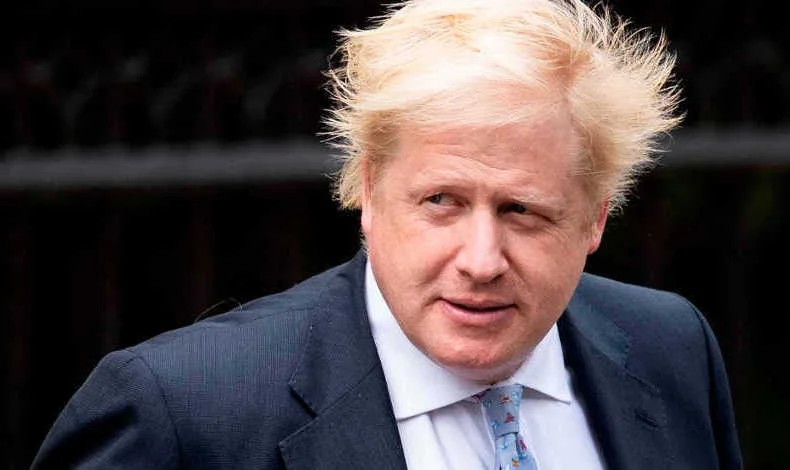Arbuthnot Latham, a private bank lauded by Boris Johnson for its role in London’s financial history, is under fire for its founders’ connections to the transatlantic slave trade.
The revelation, part of University College London’s Legacies of British Slave Ownership database, comes as two other British firms, Greene King and Lloyd’s of London, pledged reparations for their historical ties to slavery, prompting calls for Arbuthnot Latham to follow suit.
Historical Ties to Slavery
Founded in 1833 by Alfred Latham and John Alves Arbuthnot, Arbuthnot Latham specializes in wealth management for high-net-worth clients.
According to UCL’s database, Latham received £3,873 (approximately £370,000 in 2020 terms) as compensation for relinquishing ownership of 402 enslaved people in Jamaica, Nevis, and Tobago when the British Empire abolished slavery in 1833.
The Arbuthnot family also appears in the database, linked to slavery-related activities. Latham later served as Governor of the Bank of England from 1861 to 1863, a position that underscores his influence in Britain’s financial elite.
The bank’s predecessor also financed ventures tied to colonial exploitation, including Gold Fields of South Africa, led by imperialist Cecil Rhodes, whose statue at Oxford’s Oriel College was voted for removal on June 17, 2020, amid anti-racism protests.
Boris Johnson’s Endorsement
In 2013, as Mayor of London, Boris Johnson wrote a foreword for a book on Arbuthnot Latham’s history, praising its contributions to London’s rise as a global financial hub.
“The story of London’s rise to global eminence is in many ways the story of Arbuthnot Latham – a bank founded in 1833, and which financed everything from coffee plantations in Ceylon to gold mining in South Africa to banana growers in Jamaica,” he wrote.
Johnson added, “I am delighted to say that 180 years later, the bank is not only alive but flourishing.”
These remarks have drawn criticism, as the industries Johnson highlighted—coffee, gold, and banana plantations—relied heavily on enslaved or indentured labor during the 19th century, particularly in Jamaica, where slavery was phased out post-1833 but replaced with exploitative labor systems.
Reparations Movement Gains Momentum
The scrutiny of Arbuthnot Latham follows pledges by Greene King and Lloyd’s of London to address their slavery-linked pasts.
Greene King, founded in 1799 by Benjamin Greene, who enslaved at least 231 people, committed to financial reparations after Greene received the equivalent of £500,000 in modern terms for plantations in Montserrat and St Kitts. Nick Mackenzie, Greene King’s CEO, called the founder’s profiteering “inexcusable.”
Similarly, Lloyd’s of London, established in 1686, promised financial support to charities promoting inclusion for Black and minority ethnic groups, acknowledging founder Simon Fraser’s ownership of 162 enslaved people and compensation equivalent to nearly £400,000 today.
Arbuthnot Latham has not committed to reparations. A spokesperson stated, “Arbuthnot Latham stands against racism and discrimination in all forms, and is committed to diversity across the bank,” but declined to comment on reparative actions.
Broader Industry Reckoning
The UCL database highlights that 10–20% of Britain’s wealthy in the 19th century had significant ties to slavery, with compensation payments—totaling £20 million, or 40% of the Treasury’s annual income—fully repaid by British taxpayers only in 2015.
Other banks, including Barclays, Royal Bank of Scotland, HSBC, and Lloyds Banking Group, also have historical links to the slave trade, either through directors who owned slaves or loans to plantation owners.
The Confederation of British Industry (CBI) and the Institute of Directors have urged companies to examine their historical roles in slavery.
Matthew Fell, CBI’s chief UK policy director, emphasized, “Acknowledging and learning from previous wrongdoing is vital for organisations to take the right steps in future.”
A Call for Accountability
The Black Lives Matter protests of June 2020, sparked by George Floyd’s death, have intensified scrutiny of Britain’s colonial and slavery-linked past, including campaigns to remove statues of figures like Cecil Rhodes.
Arbuthnot Latham’s silence on reparations, coupled with its historical profits from slavery and Johnson’s praise, has fueled demands for accountability.
As the reparations debate grows, pressure mounts on institutions to address their roles in historical injustices.






